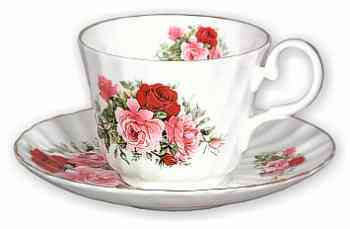 It used to be that the only way to get premium tea was through mail order catalogs. Many of those catalogs had only names and descriptions of the tea sold, no pretty photos of the tea leaves or the tea in a cup. You couldn’t exchange thoughts about the tea with anyone else and there certainly wasn’t any dialogue with the tea seller.
It used to be that the only way to get premium tea was through mail order catalogs. Many of those catalogs had only names and descriptions of the tea sold, no pretty photos of the tea leaves or the tea in a cup. You couldn’t exchange thoughts about the tea with anyone else and there certainly wasn’t any dialogue with the tea seller.
All that has changed and the tea world has really opened up. There are tea merchants, tearooms and online tea sellers like never before. It can be difficult for a person new to tea to figure out where she should purchase the best tea. If you’ve never tasted high quality tea, you won’t have anything to compare how good it can be.
Here are some things to consider when buying tea:
Do the people selling the tea know what they are talking about? Can they answer your questions without a lot of doublespeak and phony tea jargon? Are they happy to explain things to you; are they passionate about tea?
If you are buying tea from a gourmet store, notice how the tea is displayed. Does it look like an afterthought or is it a special, separate section?
If you are buying tea from your local tearoom, watch out for tea that’s been stored in their gift shop. Tea can really pick up scents from candles, potpourri and other smelly things. Cinnamon candles are great but you’ll taste that cinnamon in your tea if it has been stored close by.
By the same token, if you’re buying tea from a coffee/tea place, watch out. Coffee always trumps tea. Try only a tiny amount of tea from this kind of seller before sinking much money into it. Make sure your tea doesn’t end up tasting more like coffee.
Look at how the tea is stored wherever you’re buying. Glass jars are a big no-no. It looks so pretty but light is hard on tea. Tea should be stored in airtight containers that don’t let light into the tea.
Notice how many different teas are being sold. Does your little hometown teaseller really have enough turnover to carry 150 different tea? I doubt it. Most places can probably handle well about 50 different teas. Don’t buy tea that isn’t fresh.
Can you taste the tea? It is great if you can but there can be zoning/health code rules that prevent teasellers from making tea for you. If the seller does offer tastings of any tea or if they have only a couple teas available to taste, notice how this is done. Do you get lukewarm tea in a styrofoam cup or properly brewed tea in a real teacup? A place selling tea should always take the time and effort to brew it carefully.
The descriptions of the tea should include where the tea originates, often the exact estate and whether it is free trade or organic. If the tea menu contains a lot of really flowery language that’s not very specific or if the adjectives “rare” and “exotic” are used over and over, take extra care.
Tearooms come in all styles and levels of tea competency. If a tearoom has bagged tea for their own afternoon tea service but sells loose tea in their shop, I recommend running in the other direction.
Don’t be tricked by pretty packaging or oh-so profound sayings on web pages. Some of the artwork is absolutely gorgeous for sure. But if you want art, visit a gallery. The tea inside the package is what you’re buying.
It is okay to say drink what tastes good to you. Experiment with teas though. Know what the different varieties of tea taste like so you can make informed buying decisions.
And finally a word about price. Premium tea doesn’t have to be expensive. Check online teasellers and compare prices before buying locally. Don’t fall for advertising speak or gimmicks.




